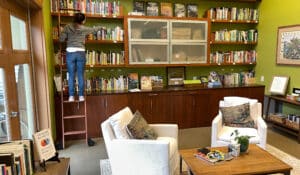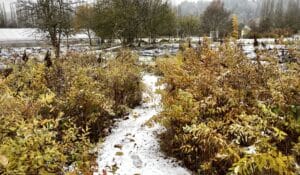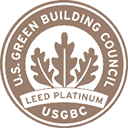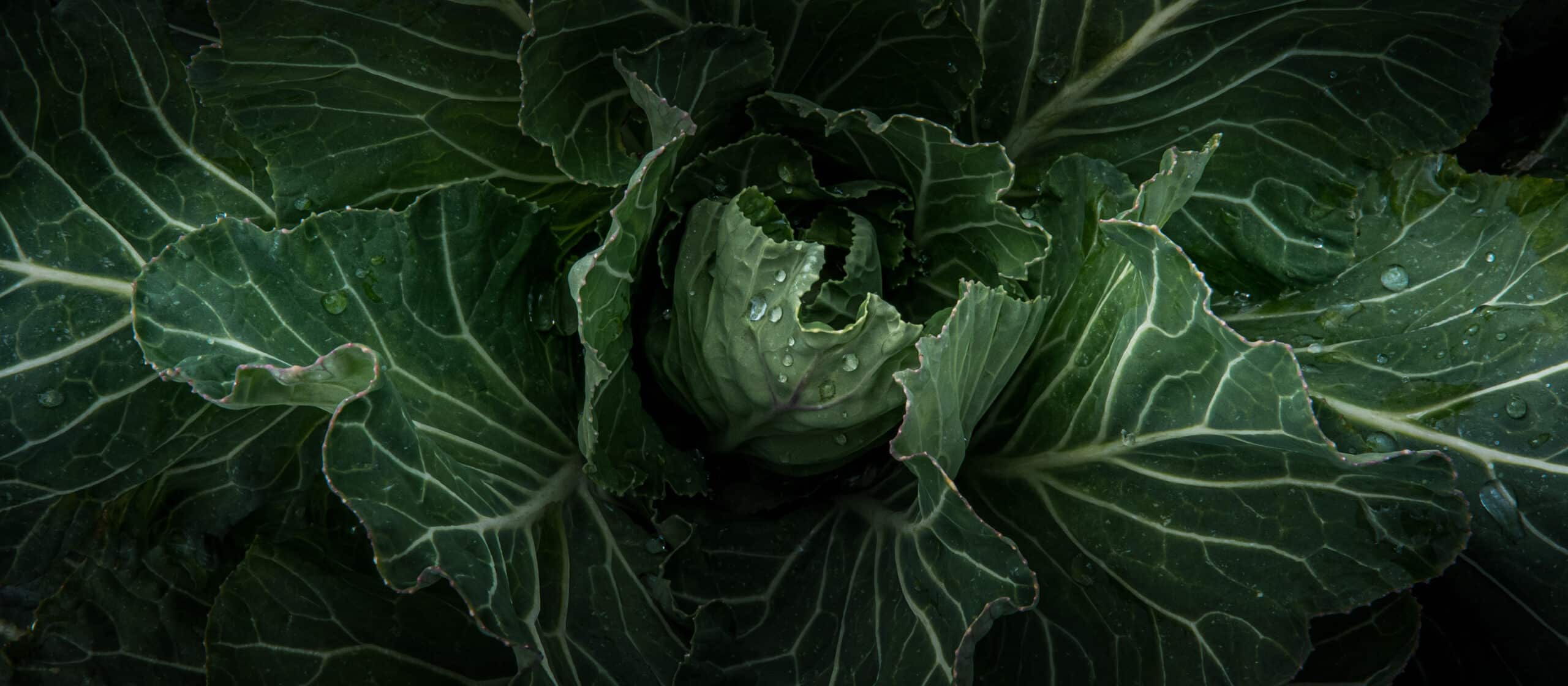
Local Progress in Carbon Offsets Proves Hopeful for Climate Action
Local Progress in Carbon Offsets Proves Hopeful for Climate Action
- posted on: March 5, 2021
- posted by: Rebecca Jordan
"*" indicates required fields

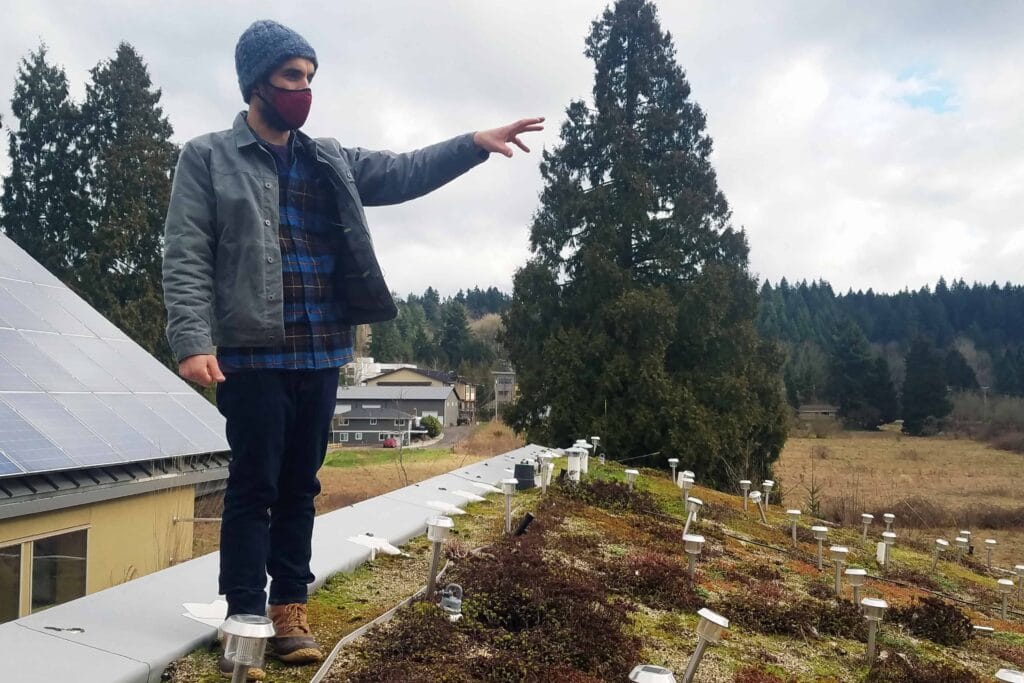
This past December Pierce County’s Conservation District (PCD) became the first in the country to offer Carbon Offsets for urban reforestation of riparian habitat. The project will offset over 3700 tons of carbon emissions through tree plantings on 13 acres in the county, while also protecting salmon habitat, saving building energy costs and cleaning the air. The tree plantings can also work to reverse historic inequities in tree distribution.
This is enough to offset the annual electricity use from 629 average homes in the US and represents yet another exciting local carbon market for a region rich in uniquely localized carbon offset options. The district has also identified up to 10,000 acres of additional public land, which could generate millions more offsets, and benefits to surrounding communities. The PCD offsets are verified by City Forest Credits and sold through the carbon broker South Pole.
This project has inspired renewed thoughts for me about the potential for agricultural carbon sequestration on the roughly 1000 acres of Sammamish Agricultural Production District that is home to our own 21 Acres. PCD’s program has also been an exciting reminder for me to assess my own carbon footprint and look for ways to reduce or offset for the coming year.
I have the unique benefit of being a resident within Seattle’s carbon neutral Public Utility District which supplies renewable energy and buys carbon offsets for any fossil fuel-based electricity that they supply me. I also continue to offset my natural gas usage through local markets–at least until my partner allows me to finally fulfill my grad school dream and rig up a biogas system in our basement! (More likely, we’ll replace our gas appliances with a heat pump, and induction stove as resources and time allow.) I also still generate some emissions by driving and going about my daily business, so while I work to minimize these by biking and walking and save up for an EV, I try to offset as much as I can afford. The availability of so many exciting local carbon markets definitely helps to nudge me along.
What is a carbon market anyway?
I’m sure clear images come to mind when you think of your local farmers market, or the Farm Market here at 21 Acres, but what the heck is a local CARBON market? In short, a carbon market is a place where people or organizations who are concerned about climate change can go to offset their carbon emissions by supporting projects that decrease emissions or remove carbon from the atmosphere.
Before we dig into more of the exciting work happening in our region, let’s first take a step back to better understand the reason for carbon markets and how they work. It all comes back to climate change.
Carbon emissions or carbon dioxide (CO2) emissions are the main source of human–caused climate change. Carbon emissions are created every time we use energy sources that come from fossil fuels. This includes driving most cars, flying inmost planes, and using electricity or home heating systems that run on fossil sources like coal, oil or natural gas. The goods and services we use are also commonly produced and transported using fossil fuels and generate emissions. For example, conventionally–grown farm goods utilize large amounts of petroleum-based pesticides and fertilizers in addition to the fuel used to run tractors and transport goods to market.
The impacts of the climate change caused by these emissions include sea level rise as well as increasing frequency and impact of extreme weather events like droughts, floods, extreme heat, and more powerful storm systems. All of this leads to costly consequences for natural disaster recovery, crop failures, water scarcity and more. These impacts also tend to effect under-resourced communities and communities of color first and worst. This makes climate change one of the greatest social justice challenges of our time and has inspired the global movement for climate justice. To learn more about this movement in WA state check out the great work of Front and Centered.
The good news is that there are a wealth of viable alternatives to fossil fuels as well as many exciting ways of reducing carbon in the atmosphere and their popularity is growing every day, from renewable energy and green building to regenerative agriculture and reforestation. The challenge now is to support these amazing solutions as much as we can and as quickly as we can in order to avoid the worst climate impacts that we can.
In order to fight climate change, we will need as a society to reduce our emissions to zero or below, but in a fossil fuel–based economy it can be pretty challenging to achieve on a personal level. This is where carbon offsets come in. Carbon offsets allow you to support renewable energy projects, reforestation projects, regenerative farming, and many other amazing climate solutions that reduce overall human–caused emissions. The process is simple and there are numerous websites that will help you calculate your emissions or a portion of them and then purchase offsets that will pay for specific carbon saving projects to capture that much more carbon.
When it comes to offsets, the most important thing to look out for is 3rd party verification to ensure offsets are legitimate. Look for a verification certification whenever buying offsets: a list of common certifications is available here. As with any product, shopping locally for carbon offsets also allows you to support local climate solutions and to better understand the good work that you’re supporting—you can literally see it in action. It turns out the Seattle area is a uniquely rich community in terms of local carbon offsets and organizations that support them.
Favorite local offsets
Ready to explore carbon offsets? Here are a few of my favorite options.
King County’s forest carbon program is the nation’s first program offering certified local carbon offsets by local government. This pioneering program allows local companies the opportunity to offset carbon emissions by buying verified carbon standard offsets that support the protection of at-risk forest lands in king county.
Forterra, one of Washington’s largest land conservation organizations, offers local offsets to individuals and businesses through their evergreen carbon capture program. These offsets support Forterra’s local tree planting efforts. Groups purchasing offsets can also plant their own trees directly to have a hand in community offsets. Although these offsets are not third–party verified, Forterra is incredibly transparent about how they calculate and track the carbon offset of each planting and also provides a map of all the plantings performed through the program. Conserving and rebuilding forests is one of the most essential ways to stabilize long–term carbon storage around the globe.
These programs are awesome local options for contributing to this effort; however, forests alone will not be able to capture as much carbon as we need.
This is a huge part of why 21 Acres works to promote regenerative, soil forward, and agroecological practices and the local food systems that support them. This is one of the least costly ways to capture carbon from the atmosphere on non-forested lands. These practices, like cover cropping and low– or no-till farming, use plants to directly capture carbon from the atmosphere and build deeper, healthier soils that can store this carbon.
There is a lot of amazing work being done locally to expand funding for agricultural carbon capture and storage on working land—while supporting local food economies at the same time. One Seattle-based organization is Nori, which has created an innovative new carbon market with offsets that support regenerative farming practices. Purchasing offsets through NORI is an excellent way to support regenerative farming and local climate solutions.
If you’re looking to get more involved, I can’t discuss carbon and regenerative farming in WA without mentioning another amazing local organization: CARBON WA. Carbon WA recently led an incredible campaign (managed by our friend Noa Kay, farmer at Songbird Haven Farm), to pass THE FARM AND FIELDS BILL through our state legislature. This pioneering bipartisan bill establishes a state-wide grant fund to support carbon emissions reductions through regenerative farming and other sustainable practices in WA.
If you’re looking for a simple way to automatically offset or avoid the carbon emissions that are generated by your home energy use (heating and electrical), one time enrollment in a renewable energy or offset program directly through your utility provider is quick and easy. If you’re a PSE customer, their GREEN POWER PROGRAMS are the easiest way to offset your energy emissions without any calculating. For your natural gas usage, you can also purchase verified local offsets through their CARBON BALANCE PROGRAM. Seattle City Light offers zero–carbon electricity from the get go, but customers can support their GREEN UP INITIATIVE to expand renewables development regionally.
There are many other places that one can buy offsets, but these great options support local carbon reduction and regenerative agriculture. Carbon offsets alone cannot fix climate change, but they are a great way to buy time and support the movement as we work to make our own lives more sustainable and to advocate for systemic change.
About Barry Febos
Barry Febos is our Facilities Energy Manager & Educator. He is a skilled sustainable technologist and ecologically minded jack-of-all-trades. Barry has an MS in Appropriate Technology from Appalachian State University where he developed regenerative energy and soil building systems for resource-limited local farmers. He has diverse work experience ranging from the design, construction, and analysis of renewable energy systems and buildings to cooperative business management, writing, art and education. Barry conducts free tours of our LEED Platinum building and can often be found performing repairs, installations, and analyses around campus. Barry enjoys exploring the woods, discovering new music, foods and ideas and sharing as much of this as he can with those around him. Don’t hesitate to pick his brain anytime. For Barry, a perfect day ends with a fresh plate of ravioli and a good movie.










 back to blog overview
back to blog overview

